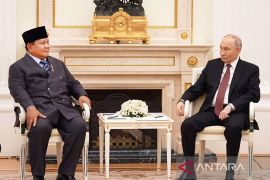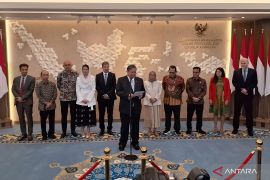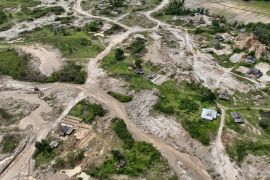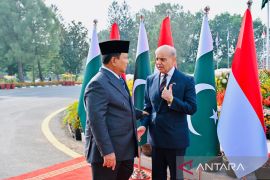By Ageng Wibowo/Alberth S. Jakarta (Antara) - Indonesia and nine other member countries of ASEAN are preparing to form a big community of 600 million people, a regional economic power with a total Gross Domestic Product (GDP) of US$2 trillion per year. The ASEAN Economic Community (AEC) would stand on three main pillars of cooperation - in security, economy and social culture. The AEC would be focused not only on economic cooperation although economic interest would be the main driving motive of the regional grouping. Director General of ASEAN Cooperation of the Foreign Ministry I Gusti Agung Wesaka Puja said the Indonesian Committee for AEC formed by the government is to give greater awareness of the people of the AEC implementation. "There is no much time left. The AEC Committee has to be more serious in socialization and in seeking to improve the country's competitiveness," Puja said here last week. He said the awareness and knowledge of the majority of the people of AEC is still low. Originally the AEC was to be implemented in January 2015, but the 10 member association decided later to roll over the implementation by the end of 2015. Some of the member countries still have a lot to be prepared to be ready to open their markets for the free trade scheme across the the borders. The ultimate goal is to create an integrated community to reduce the gap in the region. Puja said there are still hurdles hampering the implementation of AEC , therefore, the Committee has to coordinate with all stakeholders in socialization. He cited a number of benefits from AEC implementation including visa free visit and simplification of trading licenses between member countries. The economic pillar of the ASEAN Community is to create self sufficiency in all economic sectors especially in basic requirements. The security pillar is to form a joint ASEAN security body that will settle regional dispute without bringing the case to the International Court. Disputes have to be settled with win-win solution. Social culture pillar is developed on the similarity of archeological remains such as Angkor Wat in Cambodia and Borobudur, in Indonesia. The similarity indicates that the region was once united and supported each other , therefore, the cooperation should be maintained and expanded, Puja said. Regional Issues Needing Attentions Speaking on the sidelines of the 25th ASEAN summit meeting in Myanmar last month, Secretary General of the United Nations Ban Ki-moon sought to draw the attention of ASEAN countries to a number of regional issues. ASEAN should end prolonged regional tensions over territorial disputes which is potential to delay progress toward regional integration, Ban Ki-moon said. ASEAN also needs to contribute to the process of democratization such as in Myanmar and protection of human rights through recognition of the citizenship of the ethnic Rohingya minority . Another crucial issue that need international attentions including ASEAN is the outbreak of deadly Ebola virus that has killed thousands of people mainly in Africa. In addition Ban Ki-moon also drew attention of the impact of climate change, and gave stress to elimination of poverty and rural development to reduce economic gap. Nay Pyi Taw Declaration The ASEAN summit issued a new agreement called "Declaration of Nay Pyi Taw" on vision of ASEAN Community post 2015. The Nay Pyi Taw Declaration provides a foundation for a comprehensive road map for the region post 2015 to form ASEAN Community of 600 million people with a combined GDP of US$2 trillion. ASEAN leaders also agreed to strengthen the ASEAN Secretariat and ASEAN institutions. At the summit the leaders discussed issue of common interest including climate change, management of disasters, opposition to extremism and eradication of communicable diseases and promotion of humanitarian aid. They exchanged vies on conflicts in South China Sea and terrorist and extremist threats in Iraq and Syria. Realization of ASEAN Community is expected to be a running process adaptable to changing conditions in the regions. It is expected to grow stronger in economy, security and culture to be competitive facing other regional groupings in the world. The Association of Southeast Asian Nations, or ASEAN was established on 8 August 1967 in Bangkok, Thailand, with the signing of the ASEAN Declaration (Bangkok Declaration) by the Founding Fathers of ASEAN, namely Indonesia, Malaysia, Philippines, Singapore and Thailand. ASEAN now groups 10 member states - Brunei Darussalam, Cambodia, Indonesia, Malaysia, Myanmar, Laos, Thailand, the Philippines, Singapore and Vietnam.(*)
Berita Terkait
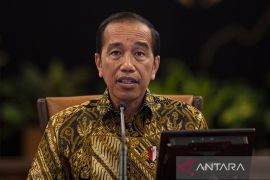
Welcome 2023 with spirit of taking Indonesia forward: President Jokowi
31 Desember 2022 20:59

Year-Ender - Pionering Fligth in Sumenep-Jember Route to End 2016
17 Desember 2015 12:33



